The Journey of Regret in ‘Old Man’s Journey’
At the end of our lives, we are left with the memories of the mistakes we’ve made
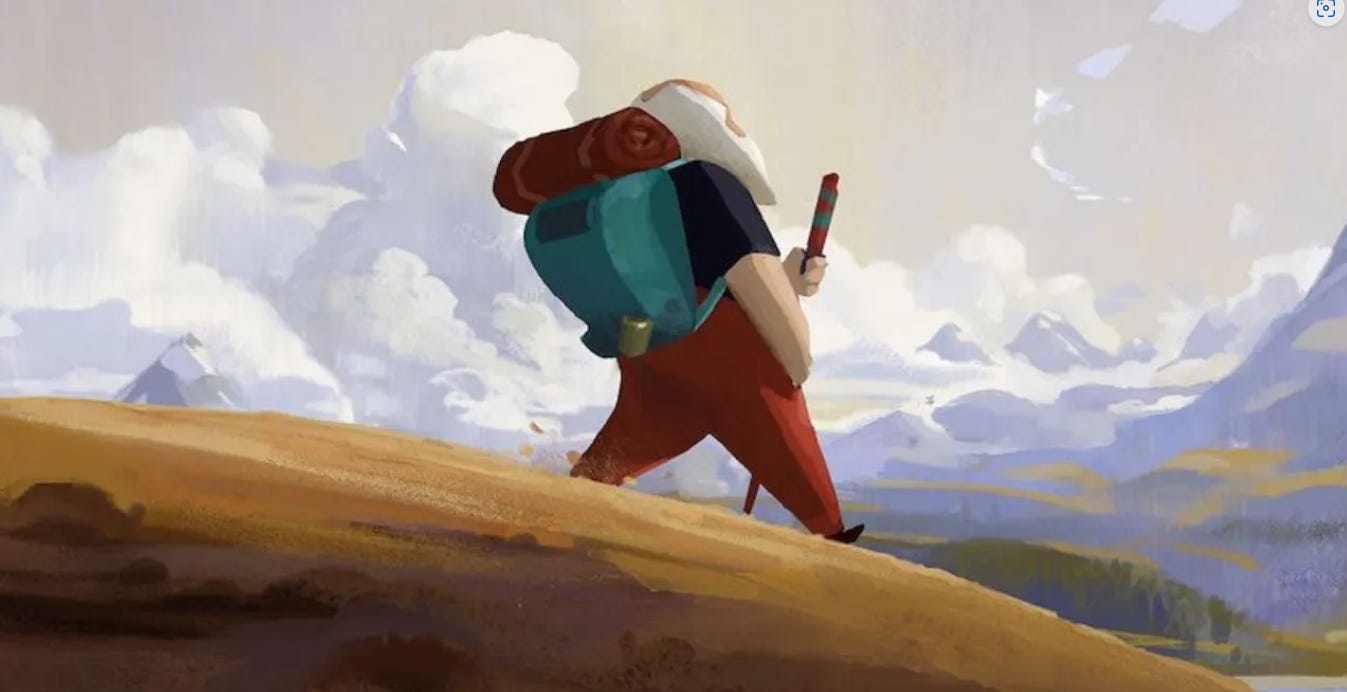
In my work as a psychologist in end-of-life care, a recurring theme shared by my patients was feelings of regret.
Regret for neglecting their bodies.
Regret for missed opportunities.
Regret for strained relationships with family.
When life slows down, and we have more time to reflect, it’s only natural to focus on our past mistakes.
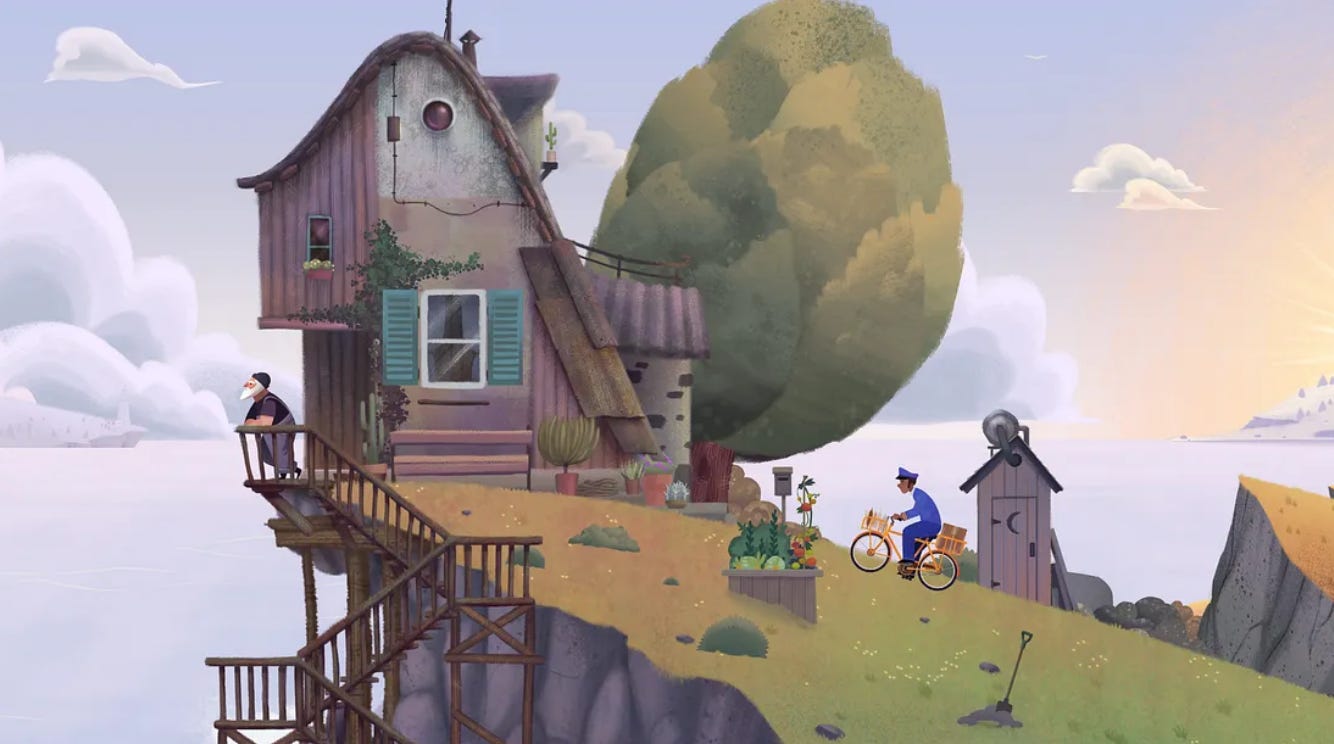
‘Old Man’s Journey’ is a story of reliving life’s precious moments and, more prominently, reliving life’s painful mistakes.
Initially, I had no expectations about the game. All I knew was that the art was gorgeous and play time was short (just a couple of hours), which fit my hectic schedule.
It begins with the titular ‘Old Man’ looking longingly out at the sea when a mailman bikes up and delivers a letter. He reads it, and without hesitation, changes into his hiking gear and embarks upon his journey.
I soon discovered that this is a puzzle game. It involves adjusting various landscapes to aid the man in his traversal. Lifting roads up. Pulling cliffs down. When he takes moments to rest, memories of his younger self float back to him.
A couple in love reminds him of his sailor days when he first met his wife.
Gazing at the sea brings back memories of his seaside wedding.
A young girl playing on a train reminds him of the joys of fatherhood.
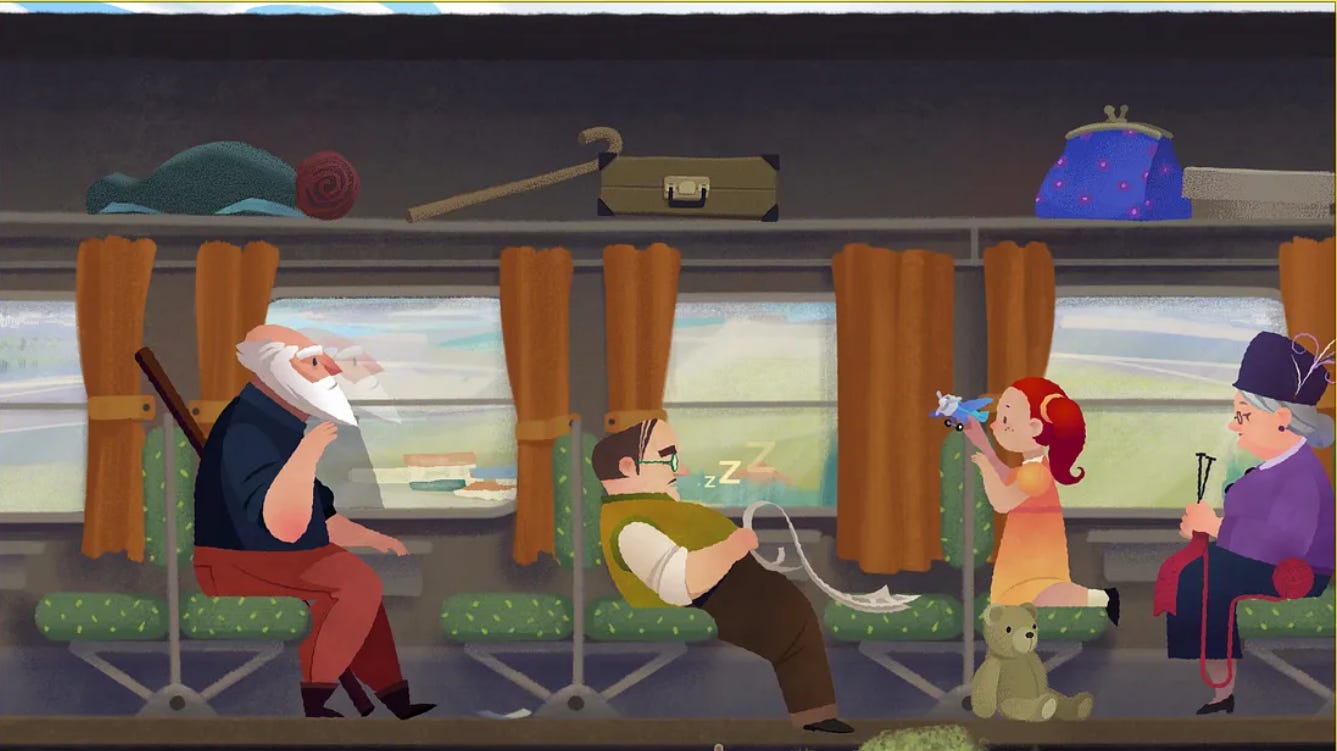
But then…the game takes a turn.
His memories drift from joyous moments to regrettable decisions. Moving from being a loving husband and father to becoming a man discontent with life — a man who laments his sailor days.
So, he chooses a life at sea over a life with his family.
It was like a punch to the gut.
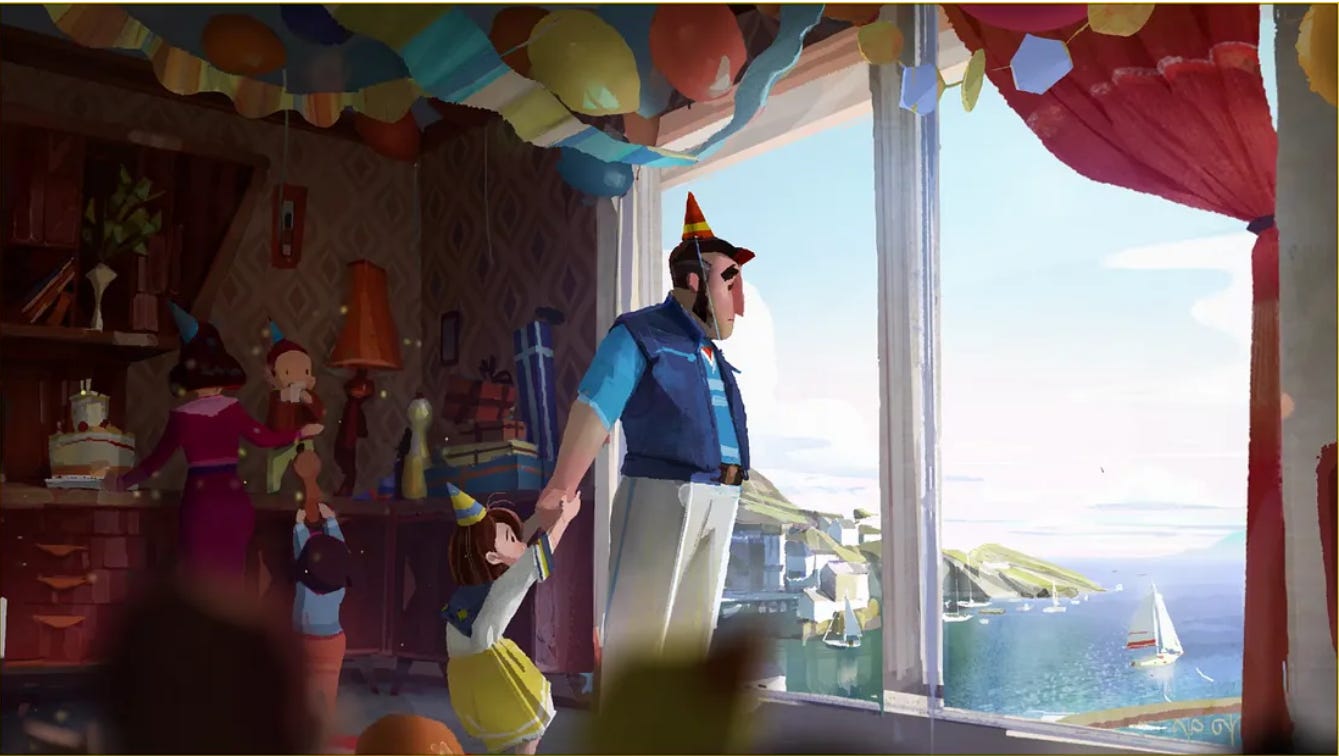
In my eyes, what was once a game about a brave elderly man out conquering the world became one about a fearful young man unwilling to face everyday life with his family. This added a whole new twist to the story and stirred all sorts of new feelings in me.
I asked myself: ‘Am I playing the villain?’
Not a ‘villain’ in the traditional sense, but, rather, in the eyes of his wife and daughter. Abandoning them for a life of freedom might not exactly be villainous, but it’s not exactly a heroic act either.
In our later years, we reflect back on our roles as parents and partners. We recall decisions and the consequences of our actions. Often, we wonder, “Did I make the right choice?”
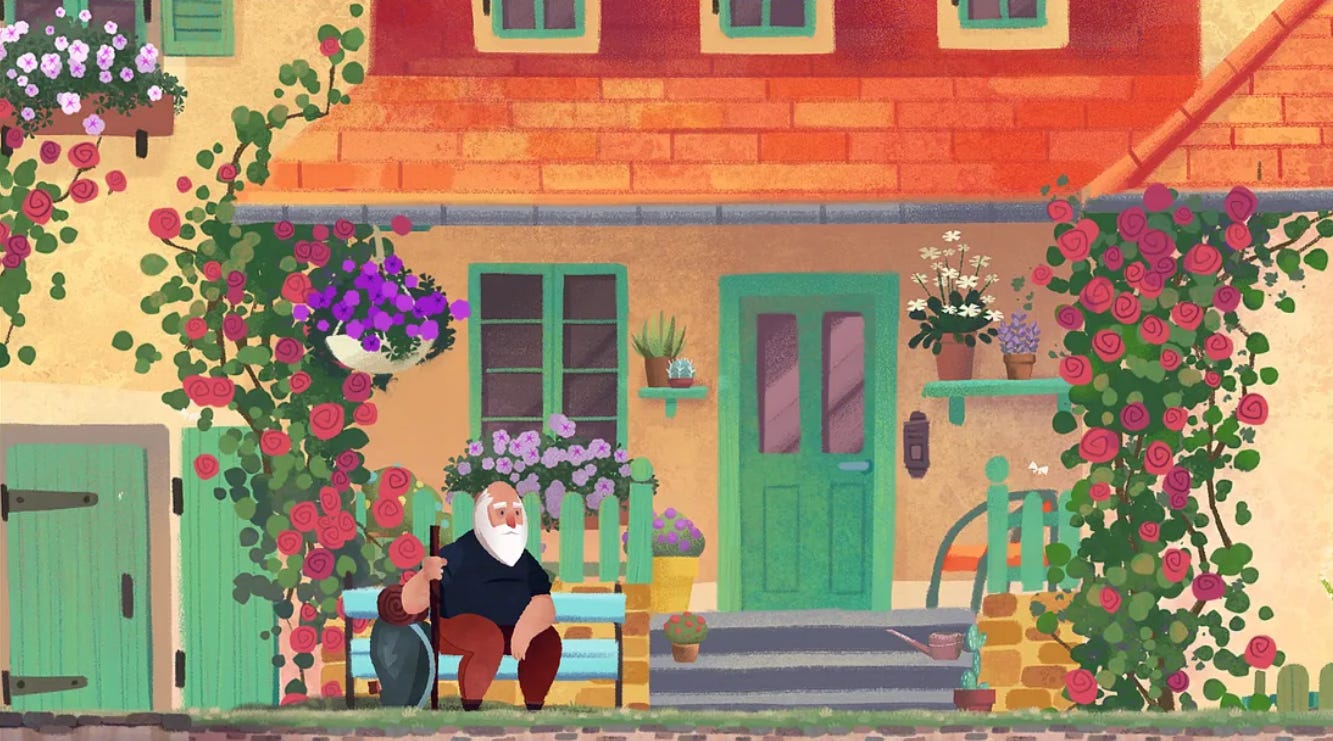
But that’s being unfair to ourselves. The person we are now benefits from hindsight; from knowing and understanding the consequences of our actions that the past us likely did not foresee.
When we make decisions, we make them using the information that we have available at that moment in time.
It is only when the decision has been made and the outcome is laid out in front of us that we can truly see if our decision has served us for the better or for the worse.
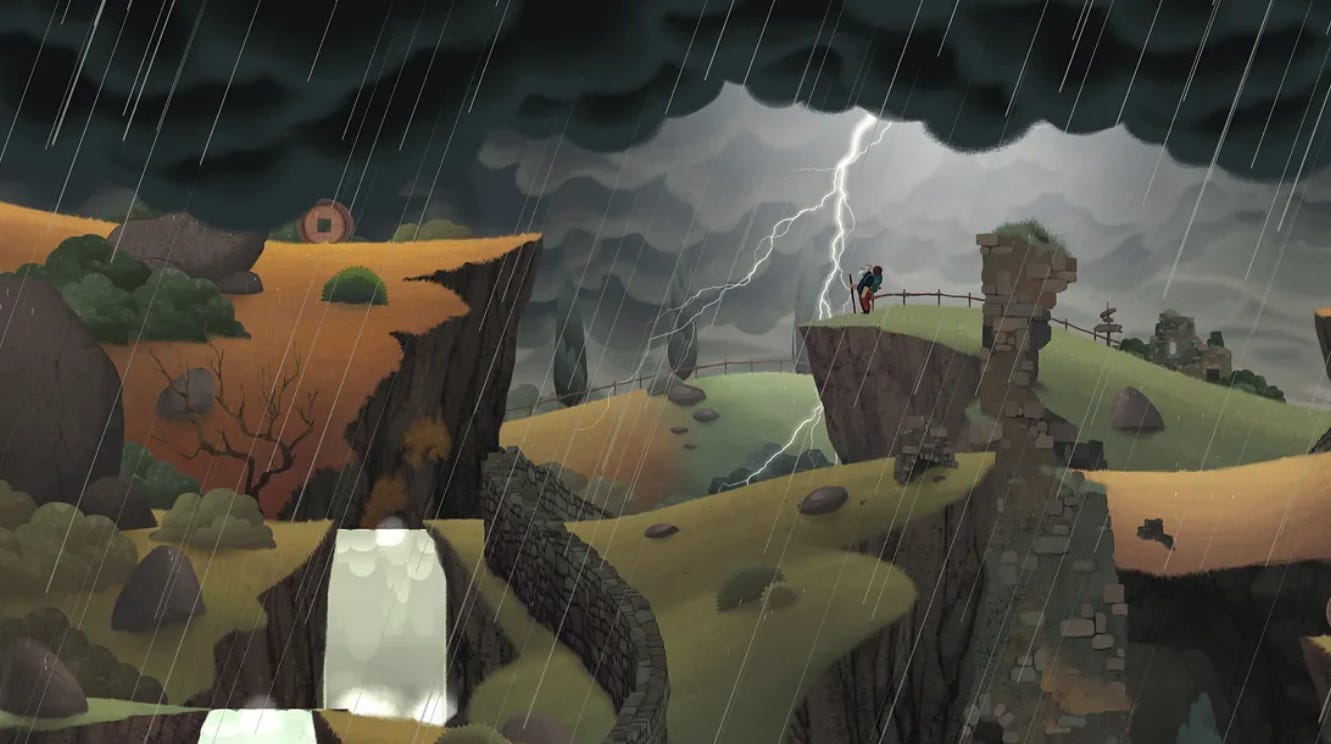
‘Old Man’s Journey’ is not only a physical traversal across the countryside but also an emotional traversal through time and choice. Decisions made in the past at that moment felt…right. But as time marched on and priorities changed, they no longer felt like the right decisions.
And yet…
…the game is not just a journey of regret but one of redemption. The old man has been given the chance to make amends for a choice that he made decades ago. And he does not hesitate to take this opportunity.
While we can’t turn back time or undo the consequences of our actions, we can learn from them. When we know better, we can do better.
We can BE better.
Like the old man, even if decisions cost us joy in our past, we can always create new joys for our future.
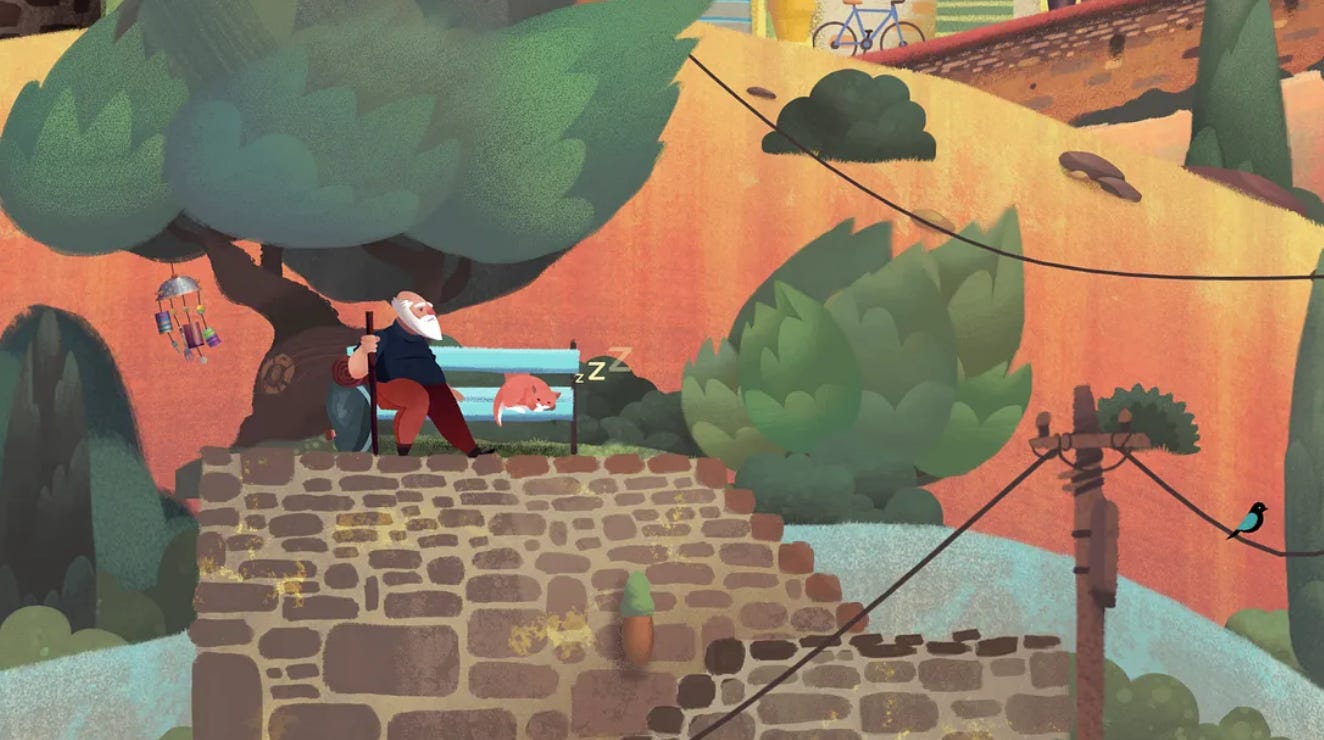
*originally published on Medium in The Ugly Monster



